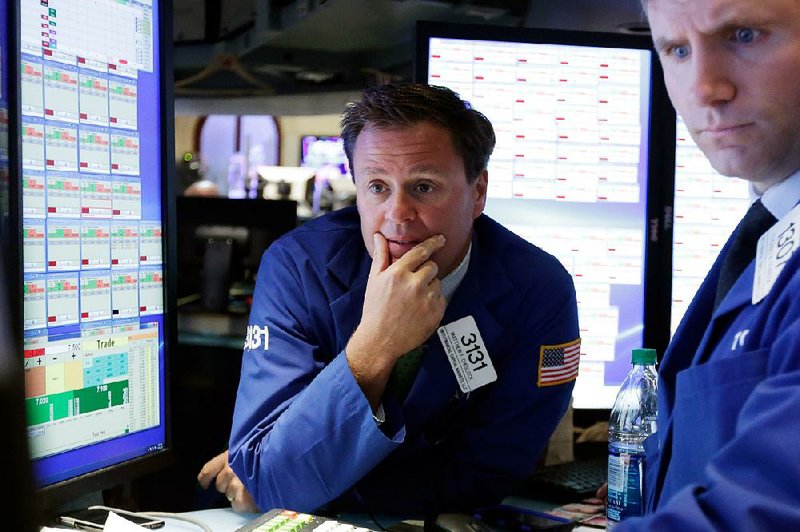NEW YORK -- The stock market endured its worst day in three weeks on Tuesday as investors fretted over Greece's debt crisis and a surge in the U.S. dollar.
Investors seeking safety bought U.S. government bonds.
The Dow Jones industrial average fell 190.48 points, or 1 percent, to 18,041.54. The Standard & Poor's 500 index fell 21.86 points, also 1 percent, to 2,104.20, and the Nasdaq composite fell 56.61 points, or 1.1 percent, to 5,032.75.
Only 32 out of the S&P 500's stocks posted gains. Time Warner Cable rose after agreeing to be acquired by Charter Communications for $55 billion. Time Warner closed up $12.42, or 7 percent, to $183.60. Charter rose $4.45, or 2.5 percent, to $179.78.
The drop Tuesday can be tied to two phenomena that, when put together, caused the selling to compound.
On one side, investors remain concerned about Greece's ability to repay its debts. Greece might miss a payment on June 5 if it fails to receive bailout funds from creditors, who are demanding that the country make reforms to its economy. Talks to reach a deal resumed Tuesday after a weekend break, but it is unclear whether an agreement can be reached in time.
Also, the value of the U.S. dollar surged Tuesday, causing reverberations in several markets. The price of oil, gold and other commodities, which are priced in dollars, dropped. That, in turn, pushed down the stocks of companies which do business in those commodities, such as copper and gold miners, or do most of their business outside the U.S. Industrial, oil and gas, and material sector companies were all broadly lower.
While investors have considered Greece's financial troubles for years now, the country is precariously close to the edge this time. It owes about $7.3 billion this month to investors and the International Monetary Fund and does not have the cash to pay it.
Meanwhile, another big question for investors is when the Federal Reserve will make its first interest rate increase in almost a decade. Many expect that to occur either later this year or early next year.
"If you think Greece is actually in its last throes in the eurozone, it's better to be safe and park your money in U.S. dollars and deal with the Fed's interest-rate increase down the road," said Quincy Krosby, a market strategist at Prudential Financial.
Both the European Central Bank and the Bank of Japan are in the midst of bond-buying programs to stimulate their economies, as the Fed did recently in the U.S. A byproduct of those programs can be a weakened currency. So when the Fed does raise interest rates, it could cause the U.S. dollar to appreciate even more against the euro and Japanese yen.
U.S. government bond prices rose sharply, sending yields lower. The yield on the 10-year Treasury note fell to 2.13 percent from 2.22 percent late Friday.
The price of oil fell sharply Tuesday as the dollar gained strength against other currencies. Oil is priced in dollars around the world, so a rising dollar makes oil more expensive to holders of foreign currency.
Benchmark U.S. crude fell $1.69 to close at $58.03 a barrel in New York. Brent crude, a benchmark for international oil used by many U.S. refineries, fell $1.80 to close at $63.72 in London.
Business on 05/27/2015
